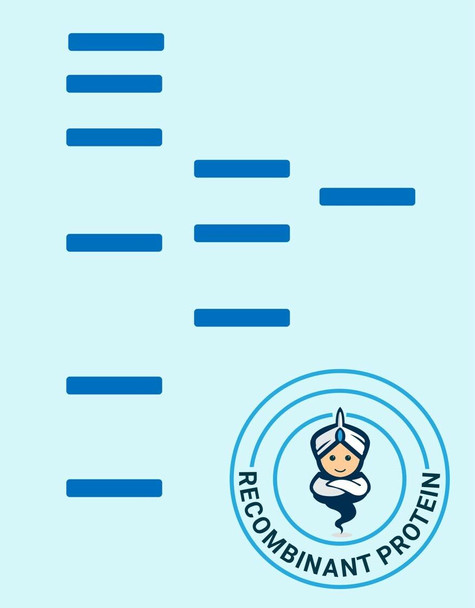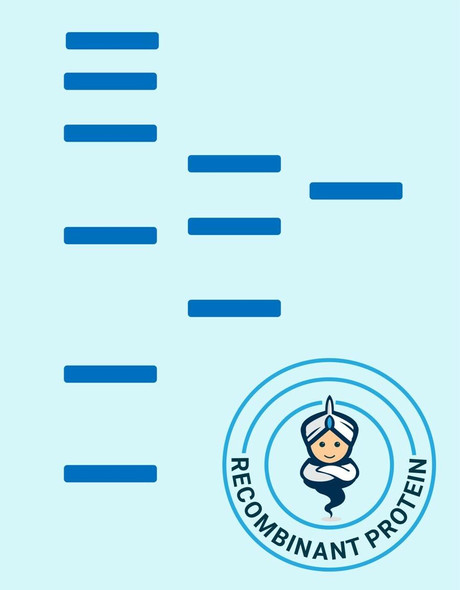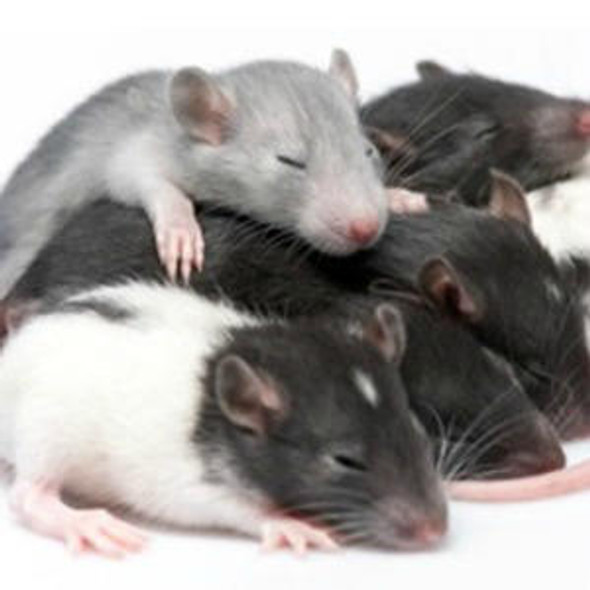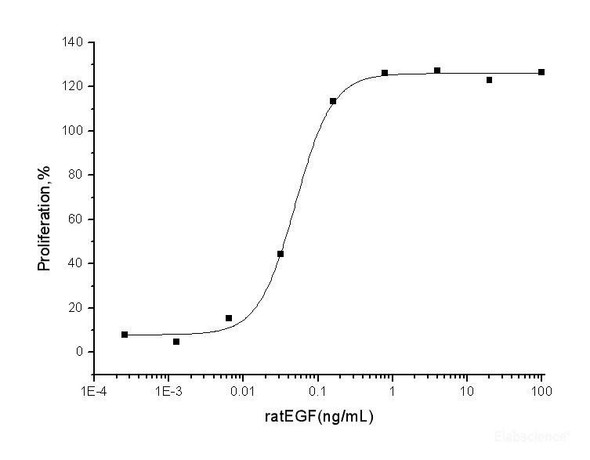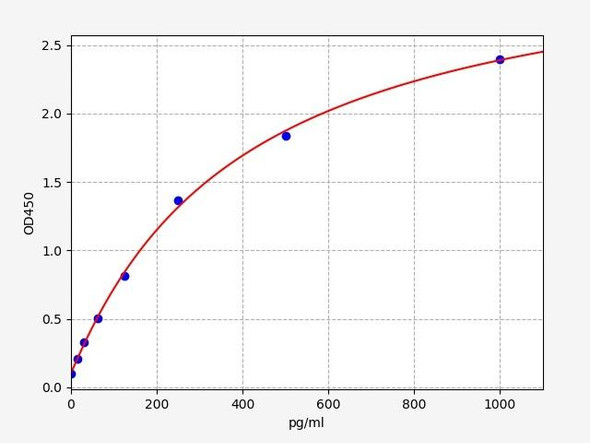Description
| Product Name: | Rat CALB1 Recombinant Protein |
| Product Code: | RPPB4424 |
| Size: | 5µg |
| Species: | Rat |
| Target: | CALB1 |
| Synonyms: | Calbindin, Vitamin D-dependent calcium-binding protein, avian-type, Calbindin D28, D-28K, Spot 35 protein, Calb1, CaBP28K, MGC93326. |
| Source: | Escherichia Coli |
| Physical Appearance: | Sterile Filtered White lyophilized (freeze-dried) powder. |
| Formulation: | The protein was lyophilized from a concentrated solution (1mg/ml) containing 50mM NaHCO3. |
| Solubility: | It is recommended to reconstitute the lyophilized CABP28K in sterile 18M?-cm H2O not less than 100�g/ml, which can then be further diluted to other aqueous solutions. |
| Stability: | Lyophilized CABP28K although stable at room temperature for 3 weeks, should be stored desiccated below -18°C. Upon reconstitution CABP28K should be stored at 4°C between 2-7 days and for future use below -18°C.For long term storage it is recommended to add a carrier protein (0.1% HSA or BSA).Please prevent freeze-thaw cycles. |
| Purity: | Greater than 90% as determined by SDS-PAGE. |
Calbindins are Ca-binding proteins belonging to the troponin C superfamily. CALB28K/Calbindin1/CALB1 (D28K/Spot35 protein or cholecalcin, rat 261 aa; mouse 261 aa; human 261-aa, chromosome 8q21.3-q22.1) was originally described as 27-kDA induced by vitamin D in the duodenum of chicken. In mammals, it is expressed in the kidney, pancreatic islets, and brain. In brain, its synthesis is independent of vitamin D. CABP28K contains 4 active and 2 inactive EF-hand Ca-binding domains. The gene for CABP28K is clustered in the same region as carbonic anhydrase. The neurons in the brains of patients with Huntington disease are CAB28K depleted. There are two types of CaBPs: the "trigger"- and the "buffer"-CaBPs. The conformation of "trigger" type CaBPs changes upon Ca2+ binding and exposes regions on protein that interact with target molecules, thus altering their activity. The buffer-type CABP are thought to control the intracellular calcium concentration. Calbindin D-28K is found predominantly in subpopulations of central and peripheral nervous system neurons, and in certain epithelial cells involved in Ca2+ transport such as distal tubular cells and cortical collecting tubules of the kidney, and in enteric neuroendocrine cells.
Recombinant Rat Calbindin-1 produced in E.Coli.The Rat CALB1 is purified by proprietary chromatographic techniques.
| UniProt Protein Function: | CALB1: Buffers cytosolic calcium. May stimulate a membrane Ca(2+)-ATPase and a 3',5'-cyclic nucleotide phosphodiesterase. Interacts with RANBP9. Belongs to the calbindin family. |
| UniProt Protein Details: | Protein type:Calcium-binding Chromosomal Location of Human Ortholog: 5q13 Cellular Component: axon; cell soma; cytoplasm; cytosol; dendrite; dendritic spine; intracellular; neuron projection; nucleus; synapse; terminal bouton Molecular Function:calcium ion binding; vitamin D binding; zinc ion binding Biological Process: learning and/or memory; locomotory behavior; long-term memory; regulation of cytosolic calcium ion concentration; regulation of synaptic plasticity; retina development in camera-type eye; short-term memory; vitamin D metabolic process |
| NCBI Summary: | binds calcium; activity is vitamin D dependent [RGD, Feb 2006] |
| UniProt Code: | P07171 |
| NCBI GenInfo Identifier: | 14010887 |
| NCBI Gene ID: | 83839 |
| NCBI Accession: | NP_114190.1 |
| UniProt Related Accession: | P07171 |
| Molecular Weight: | 29,994 Da |
| NCBI Full Name: | calbindin |
| NCBI Synonym Full Names: | calbindin 1 |
| NCBI Official Symbol: | Calb1�� |
| NCBI Official Synonym Symbols: | CaBP28K�� |
| NCBI Protein Information: | calbindin |
| UniProt Protein Name: | Calbindin |
| UniProt Synonym Protein Names: | Calbindin D28; D-28K; Spot 35 protein; Vitamin D-dependent calcium-binding protein, avian-type |
| Protein Family: | Coniferyl aldehyde dehydrogenase |
| UniProt Gene Name: | Calb1�� |

